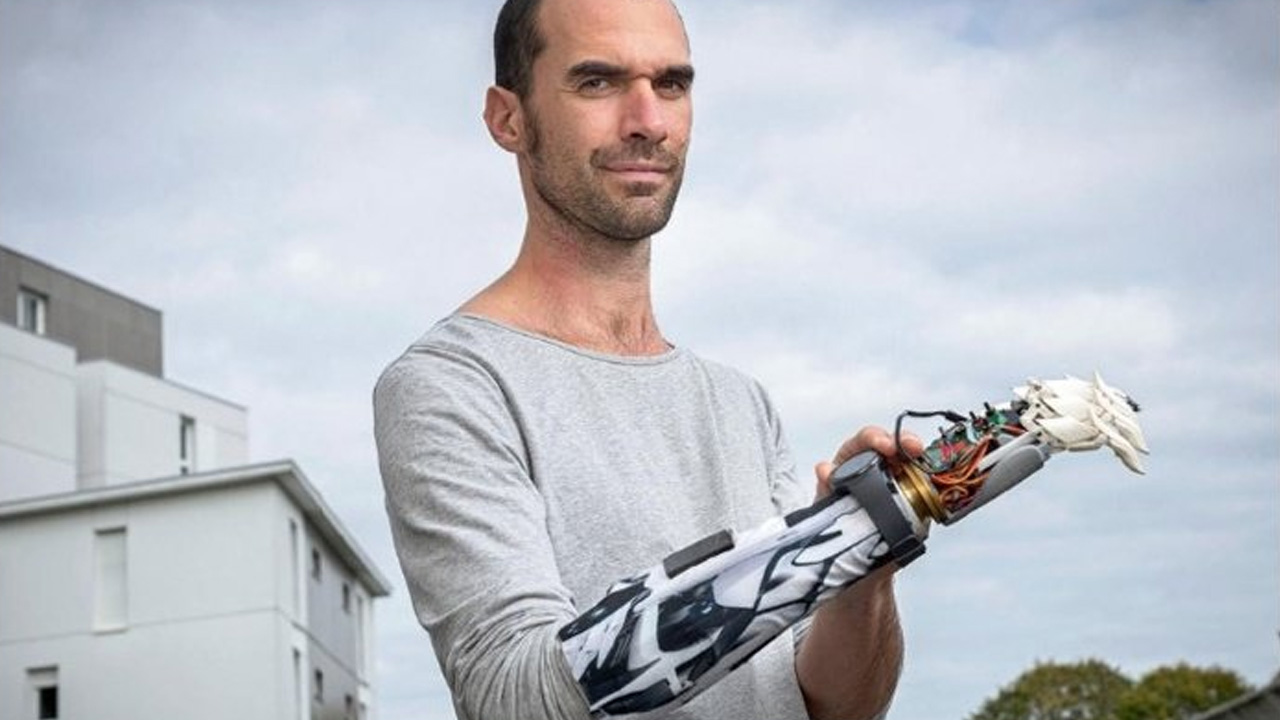Fabrikarium: Interview with Nicolas Huchet, founder of My Human Kit
19.10.2020

In 2002, mechanic Nicolas Huchet lost his right hand in a work-related industrial accident. Since then, he changed jobs several times before starting to explore the possibilities of using 3D printing to create his own bionic hand. This experience led him to found My Human Kit, which invents, makes, and shares technical aids for and in collaboration with people with disabilities.
Tell us about your background
One day, after I had been wearing an artificial hand for 10 years, I happened to see a 3D printer for the very first time at the FabLab in Rennes (France). That’s when we decided to “print” my hand together. I think we were the first in the world to print a bionic hand (it was in 2013), which explains the significant media interest we generated.
How did My Human Kit come about?
The association was set up in 2014 as a result of this project. We really did something innovative by connecting up the world of disability to the world of “makers” (the name given to the ingenious FabLab DIYers), open source, 3D printing and digital manufacturing. It also helped boost the reputation of 3D printing both in France and abroad.
How many people are involved in the association?
There are currently seven salaried employees and several volunteers. We don’t plan to grow much more but would like to see other similar initiatives take off, or see companies continue the projects we started. My Human Kit is like a sandbox that allows us to get a different perspective on disability, by learning how to use technologies.
How did My Human Kit find itself at the ArianeGroup site in Les Mureaux in 2019?
Our first encounter with ArianeGroup was in 2015, when we presented our bionic hand as part of an event around people with disabilities at the ArianeGroup site in Les Mureaux near Paris. We stayed in touch with a (disabled) employee there, and it’s thanks to him that we were able to organize the Fabrikarium (My Human Kit workshops) in 2019.
What values does an association like My Human Kit share with ArianeGroup engineers?
The only difference between an ArianeGroup engineer and a My Human Kit maker is that one of them works for ArianeGroup! [laughs] They both enjoy finding solutions. There’s a real complementarity, a coming-together, of technical and human dimensions.
How do you think companies benefit from hosting workshops like the My Human Kit ones?
They give employees an opportunity over two or three days to change their views about work, as the objective of their research and effort during the workshop is totally focused on helping another person. There’s also the inclusive aspect, raising awareness around disability and the differently abled, to understand how disability is not at all incompatible with the world of work. But it has to be a shared endeavor, and ArianeGroup really got this.
What would My Human Kit really like to develop during a Fabrikarium?
A wheelchair with a jet engine! [laughs] Going forwards, we would like to take our partnerships even further. We would love to recycle scrap materials and parts to make objects, or artificial limbs. That’s my dream.